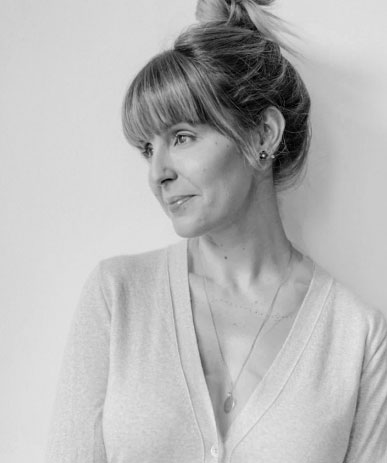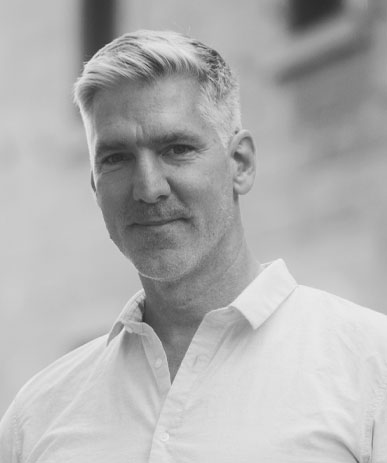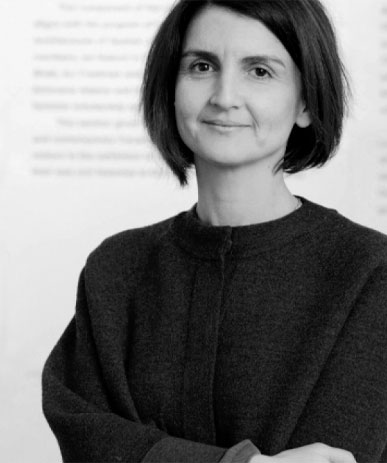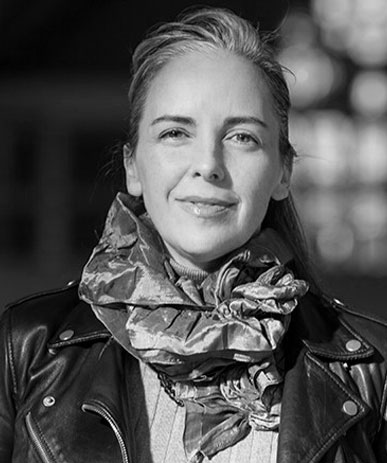INTERVIEWS
Noémi Micoulet
Interviewer: Vanessa Sicotte
Language of interview: French
Country of practice: France
Profession: Coordinator at Institut Français de Justice Restaurative.
Noémi Micoulet has a background in law and holds a master’s degree in criminology. She works for the “Institut Français de Justice Restaurative” a non-profit organisation funded by the French Department of Justice, to develop restorative justice practices and support organisations that work with survivors. They facilitate survivor/offender encounters, as well as restorative mediation groups.
During our conversation, Micoulet talks about the different spaces used by the organisation including prisons, municipal offices, houses of justice, administrative spaces adjacent to detention facilities, and “parloir” rooms for preliminary meetings between lawyers, offenders and survivors. For Micoulet, the priority for restorative spaces is establishing confidentiality, and ensuring the rooms do not revive any harmful memory for the participants. She explains her preference for spaces without physical barriers such a centre table, but acknowledges some users would prefer to have an object to lean on. Micoulet speaks about the friendliness (convivialité) of the spaces, clarifying that it is fundamental to have a welcoming environment that allows for showing care towards someone. She describes it in the form of providing a cup of coffee, juice or tea and something to eat, to make participants feel more at ease.
According to Micoulet, neutrality of spaces is a very important feature for the restorative processes, since it can avoid any spatial or decorative elements that might create discomfort to the participants. She explains how the organisation has repetitively avoided facilitating meetings in open spaces, because they prioritise privacy and confidentiality. She then describes two different spaces used by the organisation, one room with a table and chairs, and a second room with armchairs, a low coffee table, and a beautiful view of the mountains. She clarifies having a window with a view could be an asset for an encounter, but it is not essential for the restoration.

is an author, speaker, columnist, and podcaster in the fields of architecture and decorative arts. She is completing her MA in Art History at Concordia University, Montréal, and holds a Bachelor of Commerce with a major in Marketing from John Molson School of Business. She studied Industrial Psychology in Los Angeles, California. Sicotte is the author of two published books on design (2015, 2018) published by Les Éditions Cardinal.

is a Colombian PhD candidate in the Department of Art History at Concordia University. She has a background in architectural design and community activism and holds a master’s degree in Building and Urban Design from the Bartlett School of Architecture in London, England. Her interests focus on socially-engaged art, social movements, collaborative activism in post-conflict scenarios, collectively-produced art, and art produced in relation to the built environment.

is a PhD candidate in Humanities at Concordia University. His research focuses on spatial agency, social aesthetics, youth narratives, and graphic representations of urban memory. He has published on the relationship between children, play, and public space in Cartagena, Colombia. He has also worked as an editor on literary projects, including Territorio Fértil, which received the María Nelly Murillo Hinestroza award for Afro-Colombian literature.

is Associate Professor and Canada Research Chair in Architectures of Spatial Justice (Tier 2) at the Peter Guo-hua Fu School of Architecture at McGill University, Montréal, Québec, Canada. Her research interests include low-income housing and participatory design, civil protest and urban design, and campus landscapes and race. Her publications include the co-edited book, Orienting Istanbul (2010) and solo-authored book, Istanbul Open City (2018).

is an artist and a professor of Art History at Concordia University. Her work focuses on women and the history of the built environment, urban landscapes, research-creation, and oral history. She has published on the spatial history of the suffrage movement, public art, gardens, and the politics of urban change. In addition to her research on the spaces of restorative and transitional justice, she is leading an oral history project on the urban memories of diverse Montrealers.

is Associate Professor in the Department of Theatre at Concordia University, Montreal (Quebec, Canada). He is also the second co-director of Concordia’s Centre for Oral History and Digital Storytelling. His latest publications explore listening in the context of post-conflict performances of memory. For instance, see ‘Facilitating voicing and listening in the context of post-conflict performances of memory. The Colombian scenario.’ In: De Nardi, S., Orange, H., et al. Routledge Handbook of Memoryscapes. Routledge: London. (2019), and his article ‘Not being able to speak is torture: performing listening to painful narratives’. International Journal of Transitional Justice, Special Issue Creative Approaches to Transitional Justice: Contributions of Arts and Culture. (March, 2020)